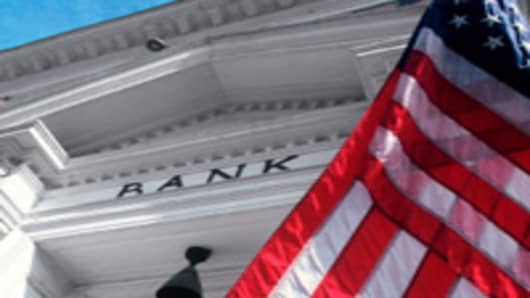On the eve of a critical procedural vote Monday afternoon, Senate Democrats were making progress in resolving some of their differences over a complicated package of financial reforms while long-running talks with Republicans to draft a bipartisan bill had once again stalled.
Banking Committee Chairman Christopher Dodd and his counterpart on the agriculture committee, Blanche Lincoln, reached a compromise agreement over regulation of over-the-counter derivatives, according to a source.
Meanwhile, Dodd's staff and that of the banking committee's ranking GOP member, Richard Shelby, had failed by late Sunday to reach a deal, covering a variety of issues, including derivatives, according to the source.
The jockeying comes as the Senate prepares to vote on a procedural measure, which would determine whether or not to limit consideration of the bill to 30 additional hours.
Under Senate rules, 60 votes are needed and the GOP's leadership has vowed to vote its 41 votes as block, which would leave the process open to a filibuster.
The derivatives issue has come to the fore in the recent week and become a tricky proposition for both parties.
Lincoln's committee passed a measure with tougher restrictions than Dodd's version and managed to secure the vote of a key Republican, Charles Grassley, in the process.
That led to speculation that Grassley--or another Republican--might break ranks with the GOP on the cloture vote scheduled for 5 p.m. Monday.
The issue burned more brightly when another Republican, Olympia Snowe, sent a letter to Majority Leader Harry Reid Friday saying she wanted the toughest oversight of derivatives possible because of the risk it would be watered down later.
Republicans generally want any derivatives regulation to provide an exception for private companies, which may want to use the financial instrument as a hedge. Though some Democrats are opposed to such an end-user exception, many are thought to be willing to accept it, as long the legislation creates a new oversight system, including trading and clearing procedures for what is estimated to be a $450-trillion market.
Lincoln’s measure, however, would essentially keep banks out of the market, as a way of decreasing risk and volatility.
The Lincoln-Dodd compromise, according to the Associated Press, would require banks to spin off their derivatives units.
Derivatives may not be the only area of compromise needed to move the massive legislation forward.
Republicans are still unhappy about the powers of the a new consumer financial protection agency, which would oversee financial products, such as mortgages.
Having apparently lost a battle to prevent the agency from having administrative and enforcement powers along with rule-writing ones, Republicans are now trying to curb its impact in two other ways, according to sources.
One would would be to increase the powers of the agency’s board, which includes the head s of other banking agencies, which could block CFPA decisions; the other would limit or preclude the ability of states to pre-empt federal regulations, which would make it easier for firms to comply and reduces the risk of even tougher terms.
In addition, Republicans—as well as some progressive Democrats—are worried the legislation does not do enough to protect taxpayers from future bailouts of big banks, insurers and other financial firms.
Analysts say that compromises on all these issues would not be out of the question under normal circumstances, but November's midterm election makes the situation unpredictable.



